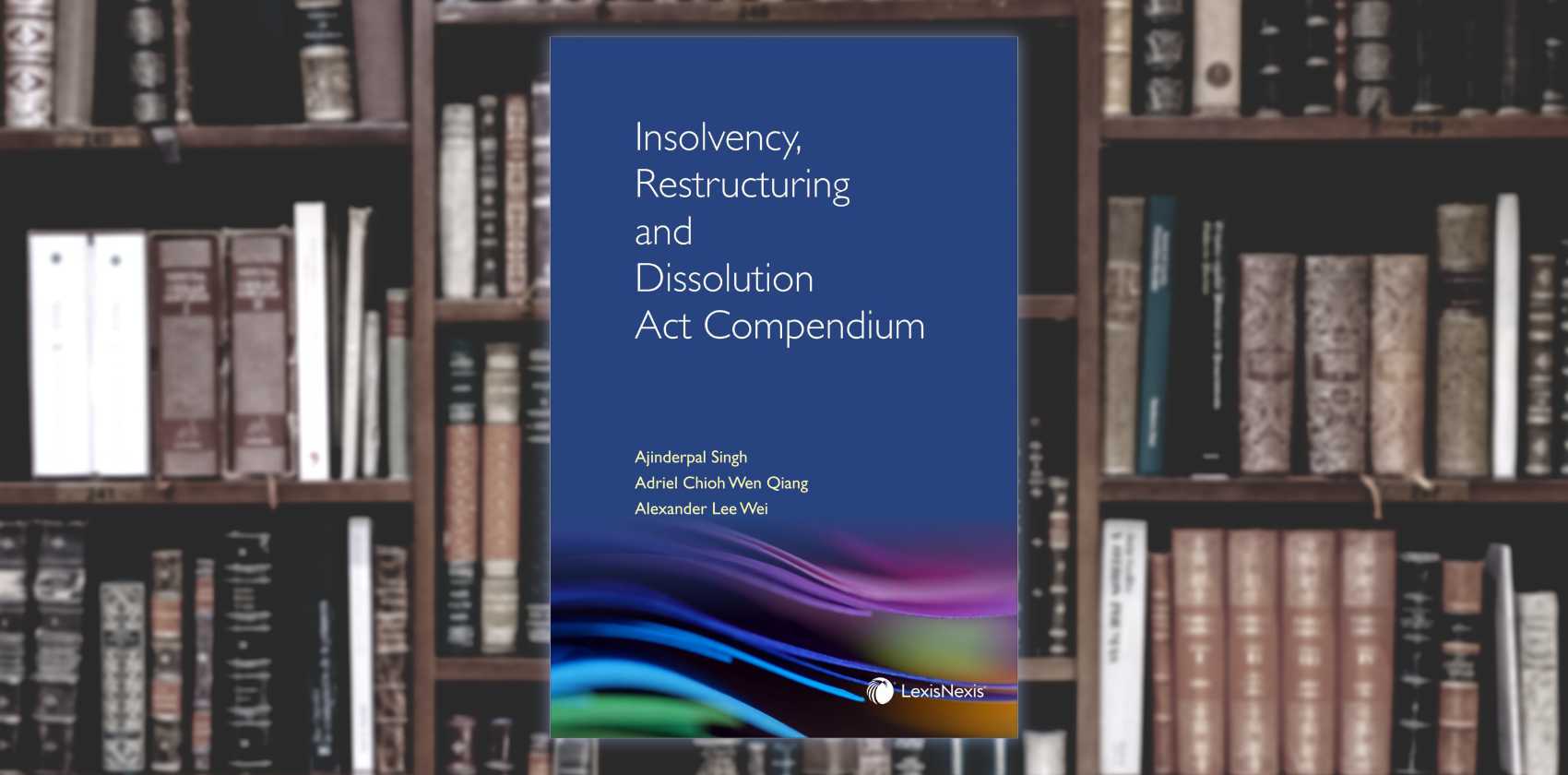Insolvency, Restructuring and Dissolution Act Compendium
by Ajinderpal Singh (Author), Adriel Chioh Wen Qiang (Author), Alexander Lee Wei (Author)
The Insolvency, Restructuring and Dissolution Act (IRDA), which came into force on 30 July 2020, amended and consolidated the written laws governing corporate insolvency and bankruptcy in Singapore into one overarching statute, while introducing new provisions aimed at enhancing Singapore’s attractiveness as a cross-border restructuring and insolvency hub. The IRDA amendments build on the earlier round of changes introduced in 2017 to Singapore’s restructuring and insolvency regime.
The Insolvency, Restructuring and Dissolution Act Compendium (the Compendium) traverses through these updates via concise commentary comprising a detailed overview of the IRDA, together with an exposition of the relevant case law. For each section, there is an explanatory statement of the IRDA amendments accompanied by practitioner’s notes which set out commentary and case law. There are also references to the Revised Report of the Insolvency Law Review Committee and the Second Reading of the IRDA. This is useful in understanding the IRDA from a law reform angle and in charting the progress in this area of law.
The cases cited in the Compendium are as recent as 2020, with the cut-off date being around July 2020. The level of detail that went towards collating the decisions is impressive. This is especially since some of the decisions while important for example Re CNA Group Ltd [2019] SGHC on the extensions of judicial management orders, may not have attracted much commentary previously. Also, some are unreported decisions for instance the first “pre-packaged” scheme of arrangement in Singapore under what was previously Section 211I of the Companies Act. The Compendium helpfully includes references to cases from other jurisdictions from where the Singapore provisions have been adopted. For example, the Compendium refers to US cases in relation to super-priority rescue financing since the Singapore provisions are adapted from the US Bankruptcy Code. In fact, the authors of the Compendium have written an excellent article on rescue financing elsewhere.1Ajinderpal Singh and Adriel Chioh, ‘Rescue Financing in Singapore: Navigating Uncharted Waters’ (2020)Singapore Academy of Law Practitioner 1.
What this reviewer appreciates the most about the Compendium are the cross-references to the equivalent sections in the Bankruptcy Act and the Companies Act where the IRDA sections can be located. For instance, section 64 of the IRDA was previously section 211B of the Companies Act. This is indeed a gargantuan task which the authors of the Compendium have done the legwork for. Otherwise, one would have to rely on “Ctrl-F’ to search for the equivalent now-repealed sections of the Companies Act and the Bankruptcy Act. Of course, the cross-referencing alone would not have been as useful without the Compendium’s replete references to case law.
Also, there are no recent local textbooks on personal insolvency law that were written after the overhauling of the Bankruptcy Act in 2016. The Compendium sets out these 2016 amendments as well as the changes introduced by way of the IRDA. Again, the Compendium’s coverage of the reported decisions remarkable, especially since personal insolvency law has generally attracted less attention than corporate insolvency law. This alone is a good reason to purchase the Compendium. The Compendium also includes a discussion on cross-border personal insolvency law, with its inclusion of the recent Court of Appeal decision of Paulus Tannos v Heince Tombak Simanjuntak ([2020] SGCA 85.
The only criticism this reviewer has of the Compendium is that it could have included some of the recent important decisions on Schemes of Arrangement such as SK Engineering Construction Co Ltd v Conchubar Aromatics Ltd and another appeal [2017] SGCA 51 and Pathfinder Strategic Credit LP & Anor v Empire Capital Resources & Anor [2019] SGCA 29. These cases considered the issue of related party creditor voting in a scheme meeting and guidance on how a company should conduct a creditors’ meeting and the information that should be properly disclosed to scheme creditors. That said, the reviewer accepts that the Compendium’s focus is to cover breadth rather than depth and this is therefore hardly a shortcoming.
The Compendium deserves a worthy place in the libraries of law faculties, legal departments, accounting firms and law firms in Singapore and other common law jurisdictions. As can be seen from the practitioner’s insights, the authors of the Compendium are au fait with the recent trends in the Singapore restructuring and insolvency landscape. The Compendium will also be a veritable resource for further issue-specific research or pointers for further research avenues. This reviewer certainly commends the Compendium practitioners that are new to this area as well as experienced insolvency practitioners.
Click here for purchase information.
Endnotes
| ↑1 | Ajinderpal Singh and Adriel Chioh, ‘Rescue Financing in Singapore: Navigating Uncharted Waters’ (2020)Singapore Academy of Law Practitioner 1. |
|---|







